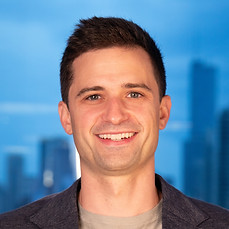Supramolecular Therapeutic Peptides: The Next Generation of Peptide Therapies
Our Mission
To develop peptide therapeutics that treat degenerative diseases and promote healing after traumatic injury – increasing the time that people can live productive, fulfilling lives


Our Science
Amphix Bio is developing a transformative peptide therapeutic platform using supramolecular chemistry
Supramolecular Chemistry
Encodes interactions between molecules
Activates regenerative signals
Interactions between molecules are encoded to enhance communication with cell receptors
Creates nanostructure scaffolds
Molecules form architecture similar to the natural extracellular environment to modulate cell and tissue biology
Supramolecular Therapeutic Peptide (STP) Platform
Peptide Amphiphile Molecule
Bioactive Signal
Activates regenerative pathways

Structural Segment
Encodes interactions between molecules
STP Nanostructure
Dynamic 3D Scaffold

Molecules form structures which activate cell receptors with higher potency than standard drugs

Supramolecular structures create scaffolds with architecture and mechanics similar to natural biology

20+
Biological targets investigated
100+
Molecules screened
20+
Bioactive sequences tested
10+
Candidates in development
Multiple leads for clinical testing

Advantages of STPs
Enables effective modulation and regeneration of cells and tissues without the manufacturing challenges and safety concerns of approaches like cell therapies
Cell free
Tunable to biological targets
Fully synthetic & chemically defined
Easy to manufacture at scale
Shelf stable
Flexible routes of administration
Our Pipeline
We are dedicated to developing therapies for patients with neurological injuries, neuro-inflammatory diseases, and musculoskeletal disorders with high unmet need
Neurological Programs
Program
Indication
Discovery
Preclinical
IND Enabling
Phase 1
Musculoskeletal Programs
Program
Indication
Discovery
Preclinical
IND Enabling
Phase 1
Our Team

Nick co-founded Amphix Bio and has led the company from the initial tech transfer in 2021 through to pre-clinical development.
He has 10+ years’ experience with Amphix Bio’s core technology platform, beginning with his PhD research in the Stupp Lab at Northwestern University.
Nick Sather, PhD
Nick Sather, PhD
Co-founder &
Chief Executive Officer

Charlotte leads Amphix Bio’s R&D program. Her PhD research in the Stupp Lab at Northwestern University is incorporated into the company’s bone regeneration therapy.
Prior to Amphix Bio, she worked at two biotechnology startups, where she focused on R&D, regulatory strategy, and IP research.
Charlotte Chen, PhD
Charlotte Chen, PhD
Principal Scientist

Natalia specializes in neurology and immunology research and drug development.
She previously worked at Alector (San Francisco), where she contributed to drug development programs targeting neurodegeneration, and brings over five years of industry experience in experimental design, data analysis, and method optimization.
Natalia Franco-Hernandez, MS
Natalia Franco-Hernandez, MS
Scientist

Dr. Grynspan is the Vice President for International Relations at Northwestern University and is also a co-founder, board observer, and Secretary at Amphix Bio.
Dr. Dévora Grynspan, PhD, JD
Dévora Grynspan, PhD, JD
Secretary

Prof. Stupp is a Professor at Northwestern University and Director of the Center for Regenerative Nanomedicine. He has led award winning academic research in supramolecular chemistry and regenerative medicine for 40+ years.
He co-founded Amphix Bio based on the technology platform developed in his laboratory over two decades.
Prof. Samuel Stupp, PhD
Samuel Stupp, PhD
Co-founder &
Chief Scientific Officer

Iwona is an expert in synthetic organic and medicinal chemistry, with experience in R&D, cGMP, patent management, and agreement negotiations.
She was previously an Invention Manager at INVO, the tech transfer office at Northwestern University. She has prior experience at four biotech and chemistry startups, including one she co-founded.
Iwona Maciagiewicz, PhD
Iwona Maciagiewicz, PhD
Principal Scientist

Dr. Hsu is a Professor of Orthopedic Surgery and Neurological Surgery at the Northwestern School of Medicine. He is a world-leading expert in minimally invasive procedures for spinal disorders.
Dr. Hsu has received numerous awards for his clinical work and serves on several influential boards, including the Head, Neck, and Spine Medical Committee of the NFL.
Dr. Wellington Hsu, MD
Wellington Hsu, MD
Scientific Advisor, Clinical Studies

Daniel is a Communications Specialist at Northwestern University and was previously a writer/editor for daily newspapers and trade publications covering the healthcare industry.
He manages Amphix Bio’s website and assists with writing and proofreading materials.
Daniel Allar
Daniel Allar
Communications Specialist

Hussain joined Amphix Bio in 2024. He was previously a Project Leader at the Boston Consulting Group (BCG), where he led engagements in strategy and operations at major global Biopharma and MedTech companies.
He completed his PhD in the Stupp Lab at Northwestern University.
Hussain Sangji, PhD
Hussain Sangji, PhD
Director, Strategy & Operations

Jennifer is an expert in the analytical characterization of drug products, including peptides, and has extensive experience in method development and CRO management.
She previously worked for three biotech companies, most recently as a Senior Scientist at Sutro BioPharma (San Francisco) and Geltor Inc. (Oakland, Calif.).
Jennifer Schmitt, PhD, MBA
Jennifer Schmitt, PhD, MBA
Principal Scientist

Prof. Hsu is a Professor of Orthopedic Surgery at the Northwestern School of Medicine. She is a leading expert in the molecular mechanisms of bone growth, with extensive experience developing in vitro and in vivo preclinical models for bone regeneration.
She has collaborated with Dr. Stupp’s lab at Northwestern for over a decade to develop peptide materials for bone regeneration.
Prof. Erin Hsu, PhD
Erin Hsu, PhD

















